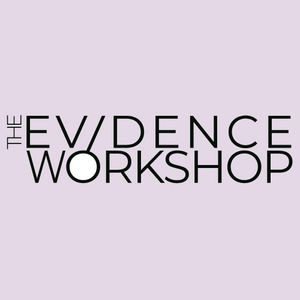Shop Talk from the Archives
June 5, 2020
On Wednesday, the results of the first randomized controlled trial (RCT) of hydroxychloroquine for prevention of COVID-19 were published in the New England Journal of Medicine (https://www.nejm.org/doi/full/10.1056/NEJMoa2016638). The study showed that people taking hydroxychloroquine are no less likely to contract COVID-19 than those taking a sham intervention.
This news is disappointing, as COVID-19 is a serious, transmissible disease for which we have no immunity and few treatments (https://www.cdc.gov/coronavirus). While we wish the outcome of the trial were different, we wanted to discuss this high-profile research report and explain the importance of mechanism-based reasoning in the genesis of RCTs.
What’s mechanism-based reasoning, and what’s it got to do with an RCT for COVID-19?
The RCT on hydroxychloroquine for COVID-19 was motivated by prior work indicating that chloroquine and its derivative hydroxychloroquine have in vitro activity against the novel corona virus. In vitro is a Latin term that means in the glass. The term is used to describe, so called, “test-tube studies” and other experiments where cells, molecules, or organisms are examined outside their normal biological context. In vitro studies are helpful because they allow scientists to strip all or most other factors from the picture to determine whether, for example, “A” affects “B”, and if so how. The “how” is what scientists call the mechanism of action. When we make clinical decisions based on the “how”, we are employing mechanism-based reasoning.
In the case of hydroxychloroquine, mechanism-based reasoning goes something like this.
Because hydroxychloroquine fights the novel corona virus in vitro, it may also fight the virus inside the human body. Therefore, individuals exposed to the novel corona virus may be less likely to get COVID-19 if they ingest hydroxychloroquine.
One limitation of mechanism-based reasoning is that it cannot tell us how things work outside the test tube. And things often don’t work the same when you add back the biological complexity of an entire living being, like a person. Thus, mechanism-based evidence must be examined in clinical trials, which is the reason that an RCT on hydroxychloroquine was needed.
What was the purpose of the RCT on hydroxychloroquine?
To determine whether hydroxychloroquine prevents symptomatic COVID-19 infection after exposure to the novel corona virus.
How was the study conducted?
821 adults without symptoms of COVID-19 participated. All reported high- or moderate-risk exposure to someone with COVID-19 at home or at work. Each was randomly assigned to an experimental or control group. The experimental group took hydroxychloroquine by mouth for 5 days. Over the same timeframe, the control group took sham tablets (i.e., folate) that looked a lot like the hydroxychloroquine tablets.
What did the study find?
14 days later, 11.8% of participants who took hydroxychloroquine and 14.3% of those who took the sham tablets tested positive for or had symptoms of COVID-19. The difference between groups was not statistically significant, suggesting that hydroxychloroquine does not prevent COVID-19.
No serious adverse effects were reported, but individuals in the hydroxychloroquine group were significantly more likely to experience side effects than those in the control group (40.1% vs. 16.8%). The most common side effects were nausea, loose stools, and abdominal discomfort.
How can I learn more?
To learn more, read the whole RCT at https://www.nejm.org/doi/full/10.1056/NEJMoa2016638. Really, it’s not that bad 😊.
The Evidence Workshop, LLC
Working with you to integrate evidence and practice so everyone
experiences the best that rehabilitation can offer.
To comment or get more information, contact our founder.
Sheila Schindler-Ivens, PT, PhD
Dept. of Physical Therapy, Marquette University
[email protected]
Shop Talk is a newsletter published periodically by The Evidence Workshop, LLC.
It helps clinicians integrate the best, available research evidence into front-line practice.
Copyright (2020) The Evidence Workshop, LLC. All rights reserved.
